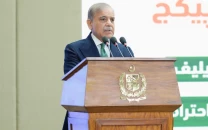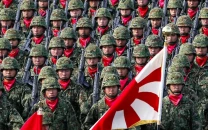India-Pakistan: On the Brink Again
“blood and water cannot flow together.”

The Pahalgam attack – which claimed the lives of 26 civilians – in Indian Illegally Occupied Jammu and Kashmir (IIOJ&K) is being opportunely linked to a recent speech by Pakistan’s Army Chief, in which he referred to Kashmir as Pakistan’s “jugular vein.”
Indian media, both print and electronic, immediately began disseminating false propaganda against Pakistan, labeling the Army Chief’s remarks as the trigger for the attack.
Notably, the widespread anti-Modi sentiment in Kashmir - and even within parts of India - was conveniently overlooked as a possible contributing factor. The attack may well be an attempt to undermine the "normalcy" narrative that India is persistently portraying.
Historically, India has followed a consistent pattern of swiftly blaming Pakistan for such incidents. However, in the case of the Pahalgam attack, there has been no official Indian statement directly attributing responsibility to Pakistan.
Instead of explicitly blaming Pakistan, the Cabinet Committee on Security (CCS) meeting, chaired by Prime Minister Modi, announced five significant measures, including the closure of the Attari border, suspension of the Indus Waters Treaty (IWT), and declaring Pakistani diplomats persona non grata.
These steps could be a possible build up towards an aggressive Indian posturing in the days to follow.
Following the Pathankot and Uri crises in 2016, Prime Minister Modi famously stated that “blood and water cannot flow together.” Since then, his government has repeatedly hinted at intentions to scrap the IWT.
While states are entitled to suspend treaties during times of war or conflict, India’s suspension of the IWT would be seen as a coercive tactic aimed at disrupting water flow into Pakistan - signaling a desire to escalate tensions. Pakistan has criticized this move as hasty, impulsive, and impractical.
Although Pakistan has categorically denied involvement in the Pahalgam attack, the suspension of the IWT is undeniably an escalatory measure that Pakistan is likely to address with corresponding seriousness, as indicated in the retaliatory measures announced by Pakistan in National Security Council (NSC) meeting.
Despite India-Pakistan relations already being at their lowest point since the 2019 Pulwama–Balakot crisis, the current developments pose an even greater threat to fragile regional stability.
The state-controlled Indian media is upping the ante by hinting at the possibility of India conducting surgical strikes inside Pakistan.
This war-mongering rhetoric, coupled with mounting domestic pressure, could push India towards retaliatory actions, even if strategic prudence suggests restraint.
In the absence of any official channel of communication and formal dialogue mechanism between the two nuclear-armed rivals, fueling up hyper nationalism on media platforms will only further heighten the risks. At this critical juncture, all state institutions must act rationally and responsibly to avoid escalation.
In the aftermath of Pulwama-Balakot crisis, analysts argued that the risk of escalation in a similar future crisis could be much greater given the dangerous addition in response options in terms of aerial combat which has a tendency of rapid escalation.
Therefore, it is imperative for India and Pakistan to defuse the situation before it escalates to a point where kinetic means are brought into the equation.
The convergence of political and military posturing, provocative media narratives, and absence of dialogue has created a volatile environment where miscalculation could easily lead to unintended consequences.
It is vital for both nations to prioritize de-escalation through diplomatic engagement rather than provocation.
Reinstating formal communication mechanisms, respecting international agreements, and promoting responsible media are essential steps toward preventing the crisis from spiraling out of control.
The current security environment after the announcement of reciprocal measures by India and Pakistan point towards serious degradation of diplomatic ties.
There is a need for a conscious shift from confrontation to dialogue in order to address the root causes of conflict and avoid frequent recurrence of similar crises.
In a region where peace remains elusive and brinkmanship prevails, rational decision making by the leadership and a commitment to regional stability is imperative.Peace should not be held hostage to leadership’s pride and reluctance to resolve conflicts.























COMMENTS
Comments are moderated and generally will be posted if they are on-topic and not abusive.
For more information, please see our Comments FAQ